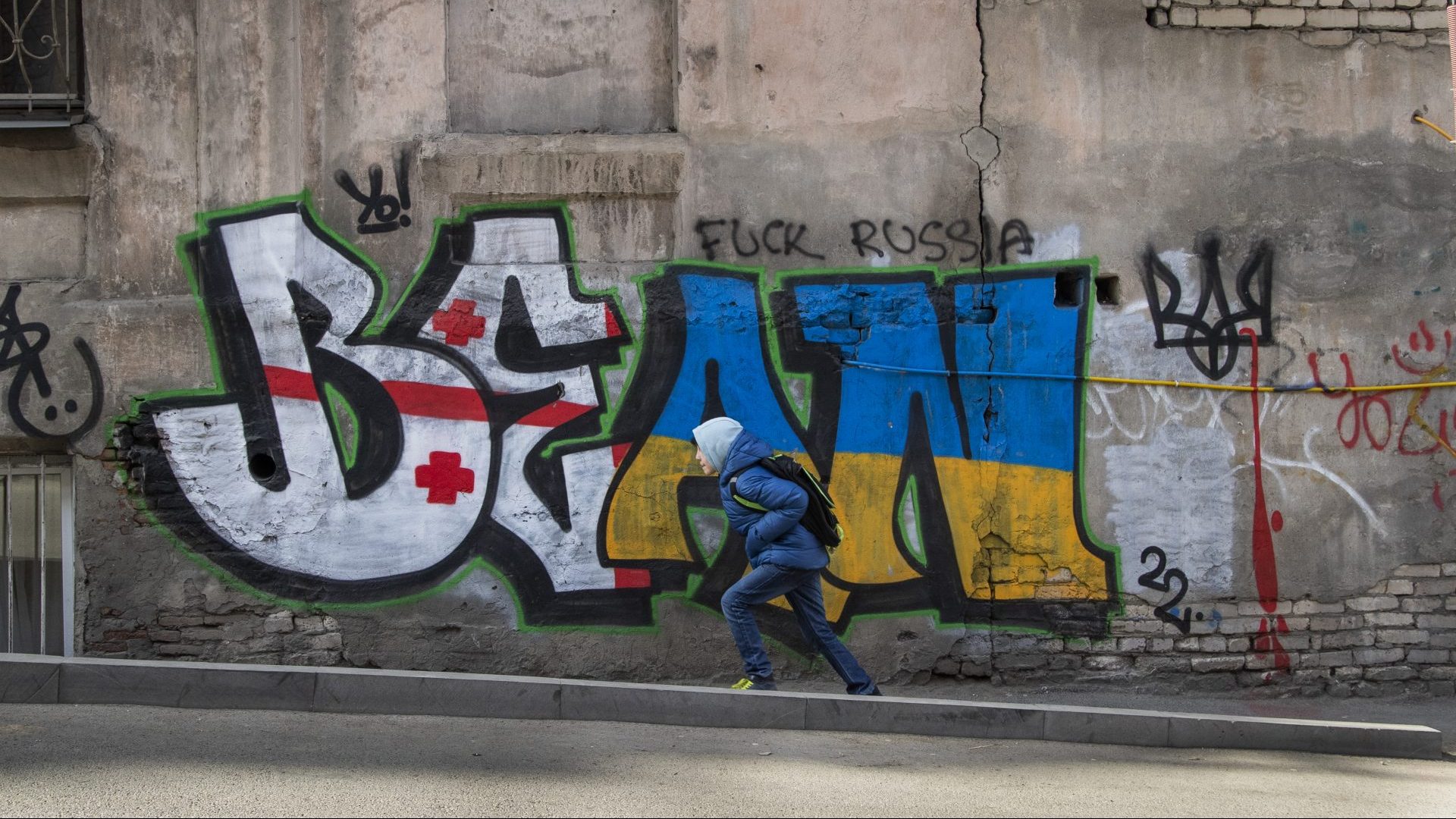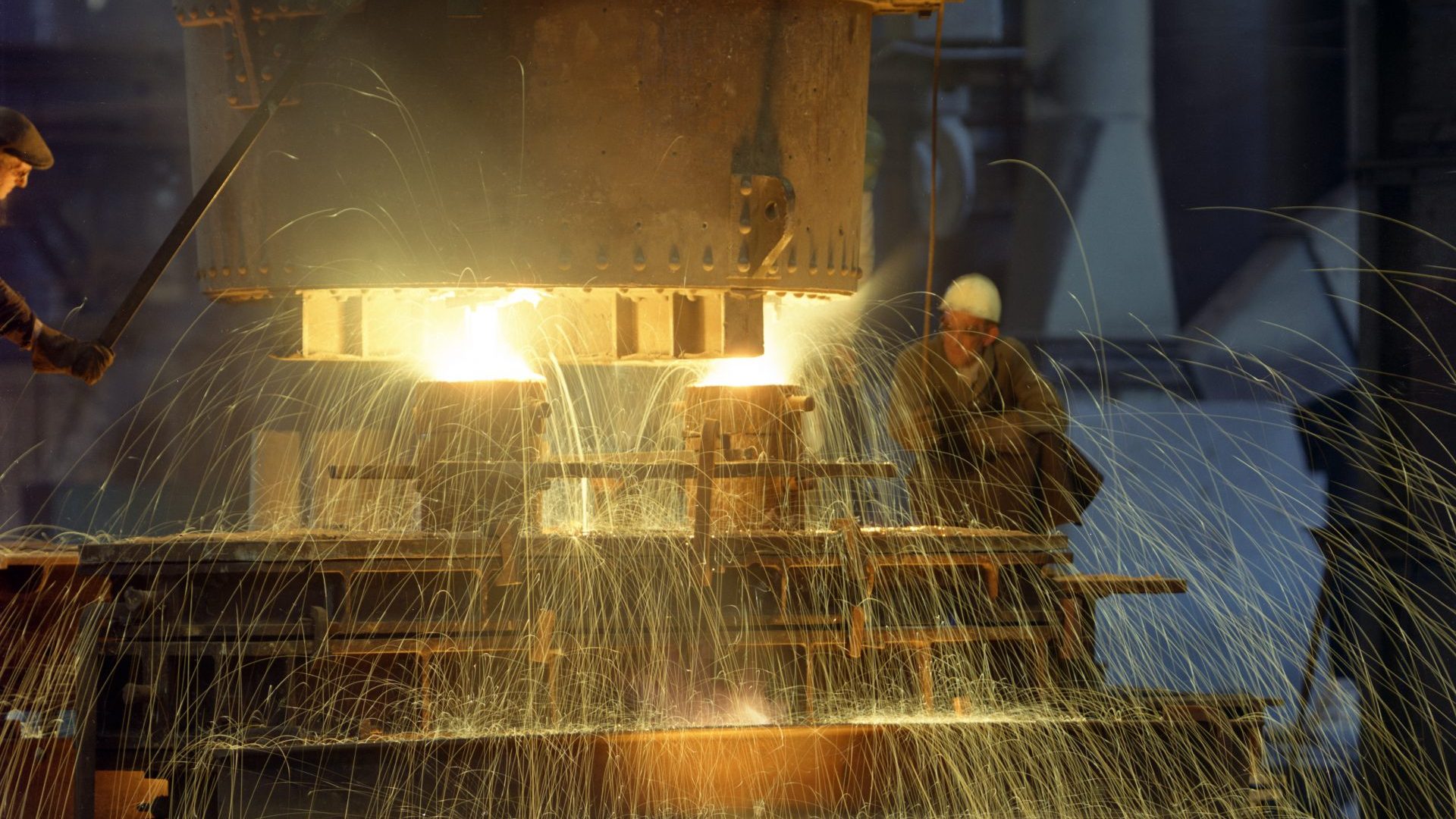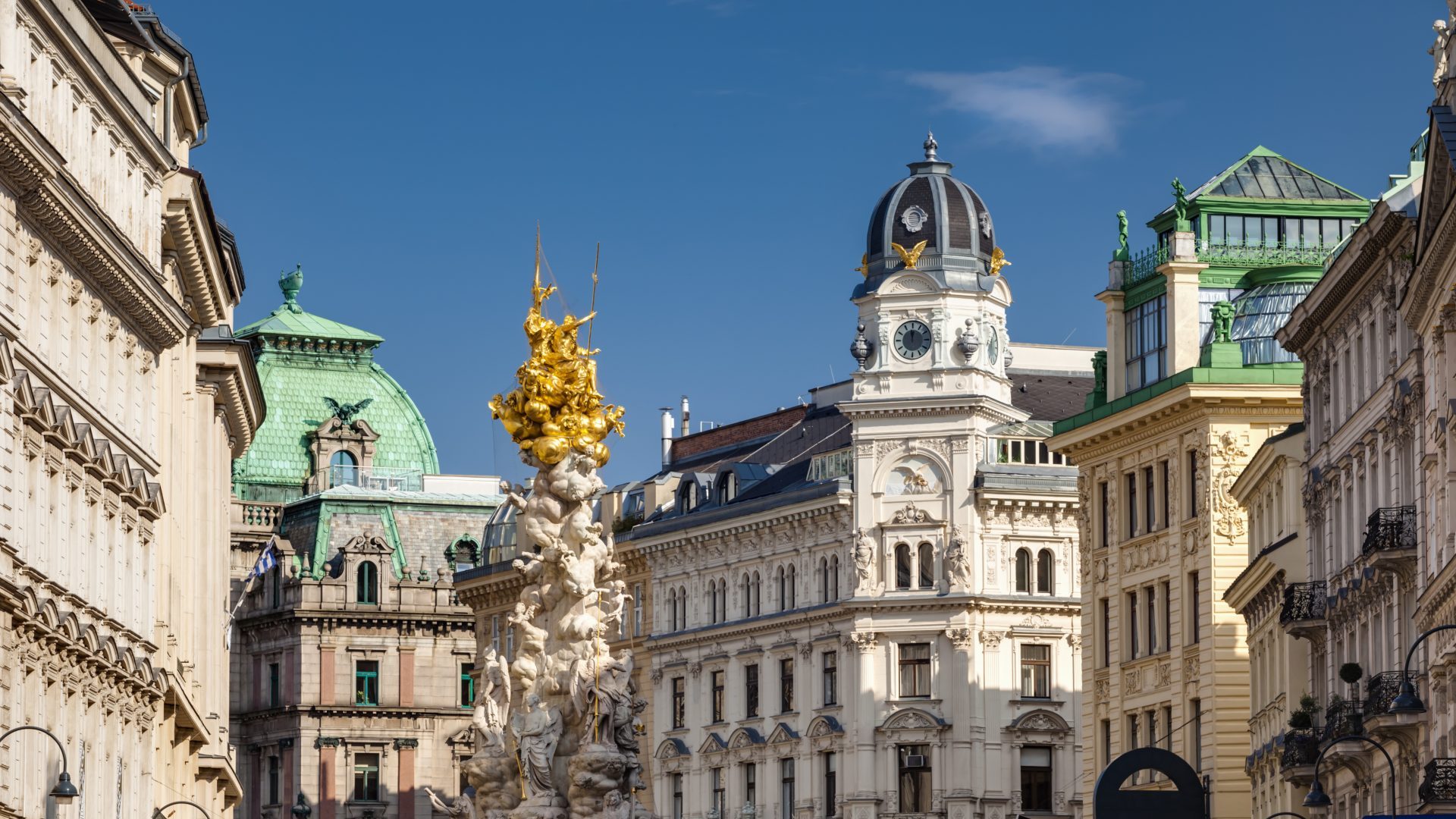The can rattles and the sound carries down the street and into the dark like broken glass falling. Most nights like this, Dato is out well into the small hours. Van crammed with stencils, spray paint, heavy markers. Clothes black, hands stained.
We’re somewhere in Vake, east Tbilisi, between brickwork and hipster wine bars when he crouches down and tells me to keep watch. I’ve lost track of how many times he’s been arrested. “Ten. At least,” he reminds me. Plus the fines have gone up. “I’m looking at 8,000 lari now.” About £2,500.
Despite his tools, Dato considers himself an activist. One of a team 15-strong. By day they trade messages on where rival pieces have appeared. At night, they set out to cover them up.
Tbilisi’s graffiti wars sketch Georgia’s story amid the conflict in Ukraine. In a country part-occupied by Russian troops since the fall of the Soviet Union, Georgians know first-hand the horrors of Kremlin aggression, and public support for the Ukrainian cause is overwhelming. Many, therefore, have little love for the hundreds of thousands of Russians who have crossed the Georgian border since February last year, taking advantage of the country’s almost non-existent visa system.
Bars and clubs routinely require Russian patrons to denounce the war, sometimes by filling out online forms before entering. One restaurant offers Vladimir Putin voodoo dolls as a barbed dessert item.
Some of the new arrivals are academics, journalists, activists. Conscientious objectors to the conflict. Others are scared kids of draft age who simply didn’t want to die in Bakhmut. From the Russian tags Dato and his guys spend their nights painting over, others still don’t necessarily share their compatriots’ condemnation of Putin’s special military operation. The piece we’re here for tonight is one of his latest. Russia is a terrorist state, it read, before someone defaced it in Cyrillic. Both messages are now illegible, but underneath, a single word. Haters.
He has shared photos with me. Ukrainian flags scrawled with Zs, huge set-pieces spelling out ЦСКА Москва, Moscow’s military football club. He responds with stencils of Oleksandr Matsievskyi, various members of the Georgian Legion killed on the frontline. The ubiquitous Slava Ukraini!, Glory to Ukraine!
Nor does Dato have much love for Georgia’s government. Since its first electoral victory in 2012, four years after a five-day war saw 20% of sovereign territory brought under Moscow’s control, the ruling Georgian Dream party has pursued a steadfast policy of non-escalation towards the Kremlin. But since the full-scale invasion of Ukraine began, critics have accused it of adopting an increasingly pro-Russian tilt.
Georgian Dream has repeatedly declined to join international sanctions against the Putin regime. Earlier in March, Tbilisi was rocked by two nights of riots to protest against its attempt at passing an analogue of Russia’s “foreign agents” law, targeting critical NGOs and independent media. Demonstrations were also recently held against a controversial decision to resume direct flights from Moscow.
Along with a near-total dissolution of diplomatic ties with Ukraine, it has seen a rapid deterioration of relations with western allies. Most pronounced, perhaps, with respect to Georgia’s aspirations for EU membership, supported by roughly 90% of the voting population. Last year, the bloc delayed the country’s application for candidacy status, citing a lack of willingness to implement needed reforms. It’s no coincidence that many of the requirements for entry run contrary to the interests of Bidzina Ivanishvili, Georgian Dream’s oligarch founder, who has faced calls to be sanctioned himself for longstanding ties to powerful Russian business figures. Both the foreign agents bill and direct flights from Moscow have been widely viewed as a fairly barefaced attempt by his party to sabotage any remaining prospects for integration.
I ask Dato what he thinks the future may hold; for Georgia, I mean, should the government continue its trajectory ever further into Moscow’s orbit. But a security guard approaches from a nearby embassy. The police are on their way.
A few heated words and Dato finishes up. As we walk, he tells me about the first piece he ever did. Scrawled at age 11 on the walls outside parliament, in Russian, during the April 1989 demonstrations for Georgia’s independence from the Soviet Union: идите на хуй. It translates as “Go fuck yourselves.”



